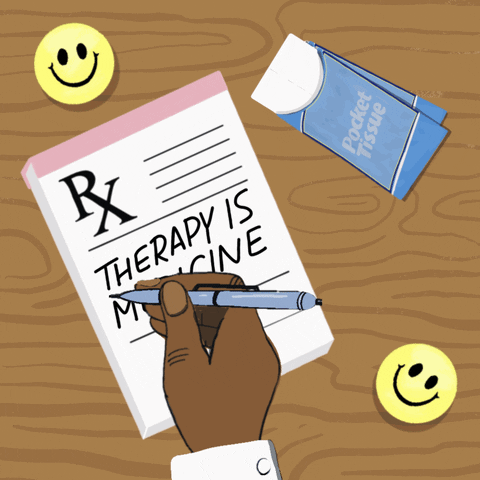3 Ways to Support Friends’ Mental Health
Support your friends’ mental health by learning the warning signs and how to help if someone is struggling.
Everyone is different, and you can’t always know what another person needs. The most important things you can do to support friends’ mental health are:
- Know the signs when someone is having a mental health challenge.
- Show you care.
- Provide resources.
Consider taking the Supporting Friends’ Mental Health Quiz if you haven’t yet. It is a quiz that can help you see how you might respond when friends need mental health support. It will bring you back here at the end.
1) Know the signs
Be aware of warning signs that a friend may be having a mental health challenge.
Warning signs of mental health struggles or substance use issues include:
- Avoiding responsibilities like school, a job, or after-school activities
- Skipping activities they used to enjoy
- Showing changes in appetite, weight, or sleeping habits
- Having big mood changes, or being more angry or irritated than usual
- Getting into trouble frequently (fights, accidents, illegal activities)
- Expressing hopelessness
- Sharing suicidal thoughts or wanting to hurt themselves (see safety is key⬇)
Additional physical changes that may mean someone is having substance use issues include:
- Bloodshot eyes and abnormally sized pupils
- Unusual smells on breath, body, or clothing
- Tremors, slurred speech, or impaired coordination
Safety is key!
If you are concerned your friend could be in danger, it is important that they get help from a licensed medical professional or counselor right away. That includes situations when a friend shares suicidal thoughts or if you believe they might hurt themselves or others.
Key resource: 988 Suicide & Crisis Lifeline
It is also important for your friend to get professional help if they are dealing with extreme distress or impairment. This means having problems in multiple areas of their life that get in the way of doing what they want to do.
Reach out to a trusted adult for advice in any of these situations!

2) Show you care
Show you care about your friend by asking how they are doing, listening with empathy, and finding fun things to do together.
Ask your friend about their mental well-being. You can:
- Create a safe environment that makes them feel open to sharing.
- Use conversation starters, such as:
I’ve noticed you don’t seem yourself lately, and I’m wondering how you’re doing.
It seems like you’ve been kind of depressed. Let me know if you’d like to talk about it.
- Follow up. Schedule a hang out, send a text message, or give a quick call to check up on your friend.
Listen with empathy and without judgment. Make sure to:
- Validate their experience. Acknowledge what they share and listen without immediately offering advice.
Do not invalidate their emotions or thoughts by downplaying their feelings. — A teen We Think Twice™ Insider
- Challenge the stigma around mental health. Let your friend know that it’s common for people to struggle with mental health, and it’s okay to ask for help. Almost half of adolescents have had a mental health challenge at some point in their lives and about one third received mental health treatment in the past year.
Seeking help for mental health is no different than getting help for another health issue.
- Know that just being present for someone is valuable.
If friends don't want to hear positive affirmation, give them the presence they want. — A teen We Think Twice™ Insider
Offer to do something fun together, like:
- Get outside! Fresh air is good for mental health.
- Watch a movie.
- Exercise together or play a sport that you both enjoy.
- Grab something to eat.
- Volunteer together for a cause you care about. Helping others can be healing.
- Just hang out and talk.

3) Provide resources
Connect your friends who are struggling to relevant resources, such as hotlines, mental health organizations, and trusted adults.
You can start by asking who they have already talked with.
If they are not in touch with a mental health professional, encourage them to seek help or offer to make the connection for them.
Remember that some people have unique mental health challenges related to being part of marginalized communities. There are mental health resources for specific communities at the links below.
Here are some good places to start:
General Emergency Services: Call or text 911 if your friend is in immediate danger.
988 Suicide and Crisis Lifeline Call or text 988 or chat 988lifeline.org for free and confidential support for people in distress. For TTY Users: Use your preferred relay service or dial 711 then 988.
SAMHSA’s National Treatment Referral Routing Service Call 1-800-662-HELP (4357) or text your zip code to 435748 (HELP4U) for free, confidential, 24/7, 365 day-a-year treatment referral and information service (in English and Spanish) for individuals and families facing mental and/or substance use disorders.
The Steve Fund The Steve Fund is dedicated to supporting the mental health and emotional well-being of young people of color. Text STEVE to 741741 to access a culturally trained crisis text line counselor.
National Human Trafficking Hotline Call 1-888-373-7888 or text “HELP” to 233733 for 24/7, confidential support if someone you know may be a victim of human trafficking.
National Runaway Safeline Call 1-800-RUNAWAY or text 66008 for 24/7 confidential, non-directive and non-judgmental support for youth considering running away from their living situation.
LOVEIS: National Dating Abuse Helpline Call 1-866-331-9474, text “LOVEIS” to 22522, or use TTY: 1-800-787-3224 to access 24/7 support if someone is experiencing or is at risk of experiencing dating abuse.
See Getting Answers to Your Mental Health Questions: How to Talk with Mental Health Professionals for information on finding a mental health professional.
Encourage your friend to talk with their parent, guardian or other caregiver.
If a parent or other caregiver is not available or your friend doesn’t feel comfortable talking with them, other trusted adults can also provide support.
Help your friend identify some trusted adults in your community who they could reach out to for help. A trusted adult could be:
- A favorite teacher
- The school nurse
- A guidance counselor
- The coach of your sports team
- A reliable extended family member or family friend
- A leader of an after-school club or youth group
- A faith leader
See Getting Answers to Your Mental Health Questions: How to Talk with Parents and Other Trusted Adults for information on starting conversations with parents and other trusted adults.
During every step, take care of yourself.
To take care of others in a healthy way, you must take care of yourself.
This may look like making time for things you love to do or setting healthy boundaries.
- Be honest with yourself and notice how you are feeling.
- Set appropriate limits based on how you want to feel. Consider your other responsibilities (school, work, family).
- Communicate your limits clearly.
- Honor the limits you’ve made for yourself.
- Practice mindfulness habits.

Kudos to you for learning how to support friends when they are in need!
To learn more about teen mental health, see additional We Think Twice™ resources on mental health.
You can also share this listicle with your friends to help build a community of support!
